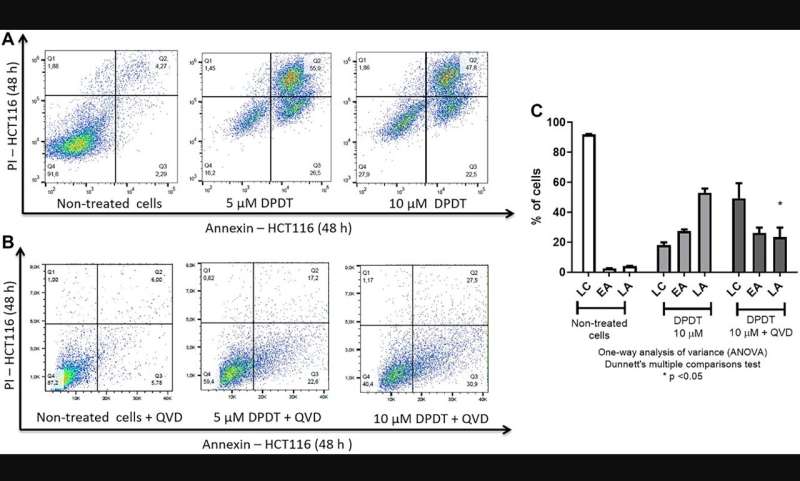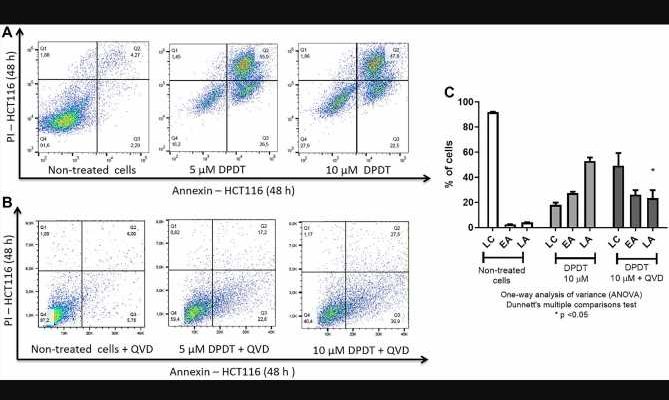
A new research paper has been published in the journalOncotarget entitled, “Diphenyl ditelluride anticancer activity and DNA topoisomerase I poisoning in human colon cancer HCT116 cells.” Diphenyl ditelluride (DPDT) is an organotellurium (OT) compound with pharmacological properties, including antioxidant, antigenotoxic and antimutagenic activities when applied at low concentrations.
However, DPDT as well as other OT compounds also show cytotoxicity against mammalian cells when treatments occur at higher drug concentrations. The underlying mechanisms of toxicity of DPDT against tumor cells have previously been poorly explored.
In this new study, researchers from the Federal University of Rio Grande do Sul, Sorbonne Université, Federal University of Health Sciences of Porto Alegre, Lutheran University of Brazil, Bulgarian Academy of Sciences, and University of Vale do Taquari aimed to investigate the effects of DPDT against both human cancer and non-tumorigenic cells.
“Together, our results will help to better define DPDT as a potential drug candidate for treating CRC,” the researchers state.
The researchers used the colonic HCT116 cancer cells and the MRC5 fibroblasts as models. Their results showed that DPDT preferentially targets HCT116 cancer cells when compared to MRC5 cells with IC50 values of 2.4 and 10.1 μM, respectively. This effect was accompanied by the induction of apoptosis and a pronounced G2/M cell cycle arrest in HCT116 cells.
Furthermore, DPDT induces DNA strand breaks at concentrations below 5 μM in HCT116 cells and promotes the occurrence of DNA double strand breaks mostly during S-phase as measured by γ-H2AX/EdU double staining. Finally, DPDT forms covalent complexes with DNA topoisomerase I, as observed by the TARDIS assay, with a more prominent effect observed in HCT116 than in MRC5 cells. Taken together, the results of this study show that DPDT preferentially targets HCT116 colon cancer cells likely through DNA topoisomerase I poisoning.
“This makes DPDT an interesting molecule for further development as an anti-proliferative compound in the context of cancer,” say the researchers.
More information:
André Luiz Mendes Juchem et al, Diphenyl ditelluride anticancer activity and DNA topoisomerase I poisoning in human colon cancer HCT116 cells, Oncotarget (2023). DOI: 10.18632/oncotarget.28465
Journal information:
Oncotarget
Source: Read Full Article
